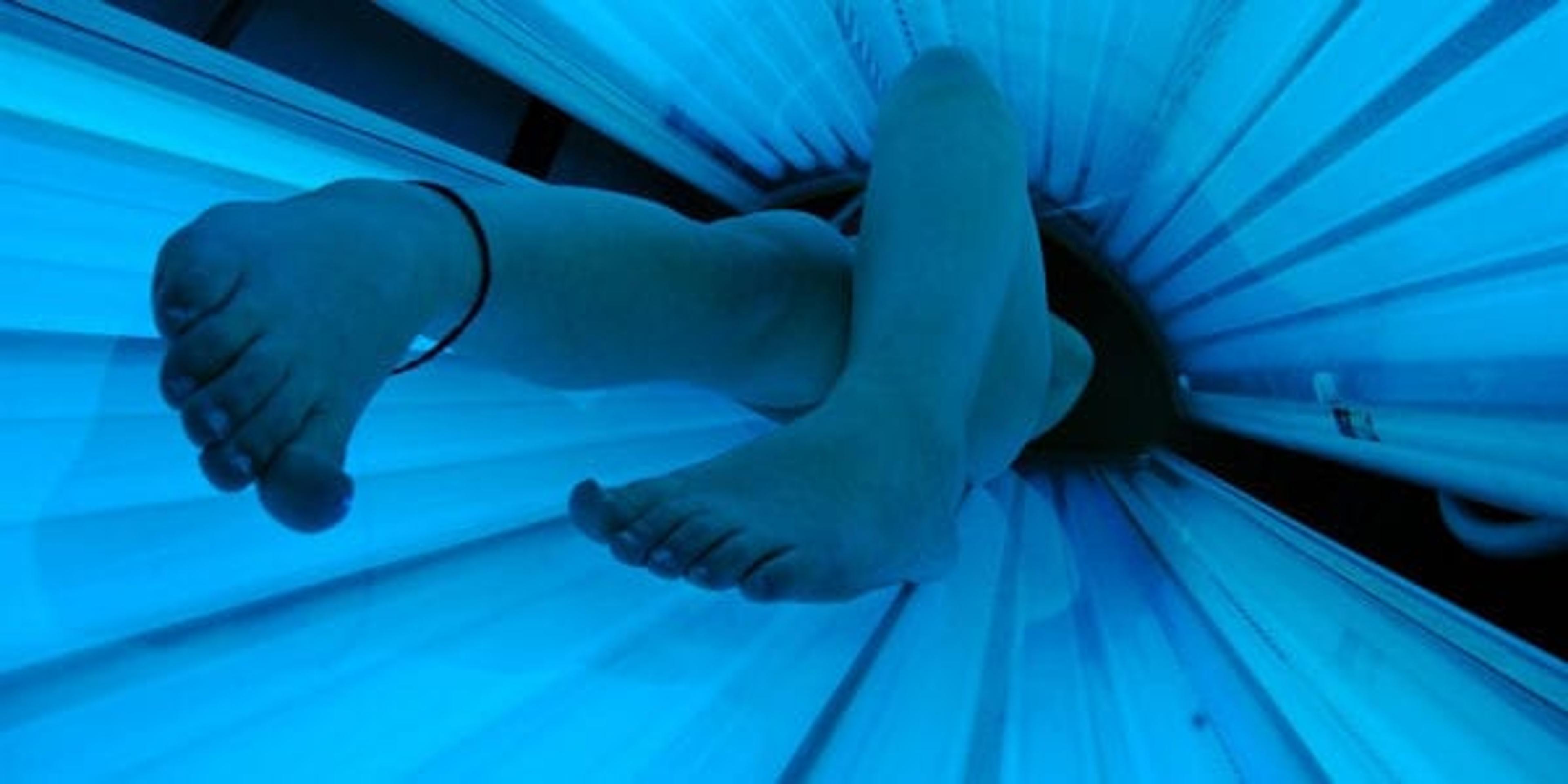Think Tanning Booths Have Gotten Safer? Here’s the Scary Truth
| 3 min read

For Michiganders, the winter typically means your sun-kissed skin of summer is a distant memory. Unfortunately, turning to tanning beds is not a smart alternative. The Skin Cancer Foundation reports that people who do indoor tanning have a 74 percent higher risk of developing melanoma, a deadly form of skin cancer, than those who have never set foot in a tanning studio. Since the popularity of indoor tanning is so widespread, especially among young adults, it seemed like a good time to remind you how serious the risks are when you use one.
- Whether exposure to UV radiation is directly from the sun or from artificial sources like tanning beds, the FDA states that exposure can increase the risk of skin cancer, especially melanoma.
- Contrary to popular belief that a tan is a sign of a healthy glow, a tan is actually the skin acting in self-defense to UV rays by producing more melanin–the pigment that causes skin to darken. Over time, this damage could lead to prematurely aged skin and even cancer.
- Even infrequent tanners are at risk for skin cancer. New research from the Skin Cancer Foundation has found that just four visits a year to a tanning booth can increase the risk for melanoma by 11 percent. Four visits could also be enough to increase the risk of two other common forms of skin cancer, basal cell carcinoma and squamous cell carcinoma, by 15 percent.
- Research also has shown that tanning can be addictive. Tanning beds emit UV light that stimulates the part of the brain that releases feel-good chemicals, which could encourage repeat visits to the tanning salon.
- Although tanning salon proponents argue that tanning beds emit ultraviolet A (UVA) radiation rather than sunburn-causing ultraviolet B rays, research actually shows that frequent tanners may receive 12 times the amount of UVA radiation than they would through normal sun exposure. And just like UVB radiation, UVA radiation is a carcinogen.
Spray tans, which many see as a safe way to get a faux glow, may not be 100 percent in the clear either. According to a federal report ABC News obtained, the active chemical used in spray tans has the potential to cause genetic alterations and DNA damage. This leads some toxicologist to worry about the build-up of the chemical on skin and in the bloodstream.
Still in search of some Vitamin D during the cold, dark winter months? Check out these other ways to get it without soaking up UV rays.
If you liked this post, you might like these other blogs:
This blog post is part of #HealthyMe, a personalized web experience based on your health and wellness goals. To sign up today, visit https://www.ahealthiermichigan.org/healthyme
Photo credit: Evil Erin





